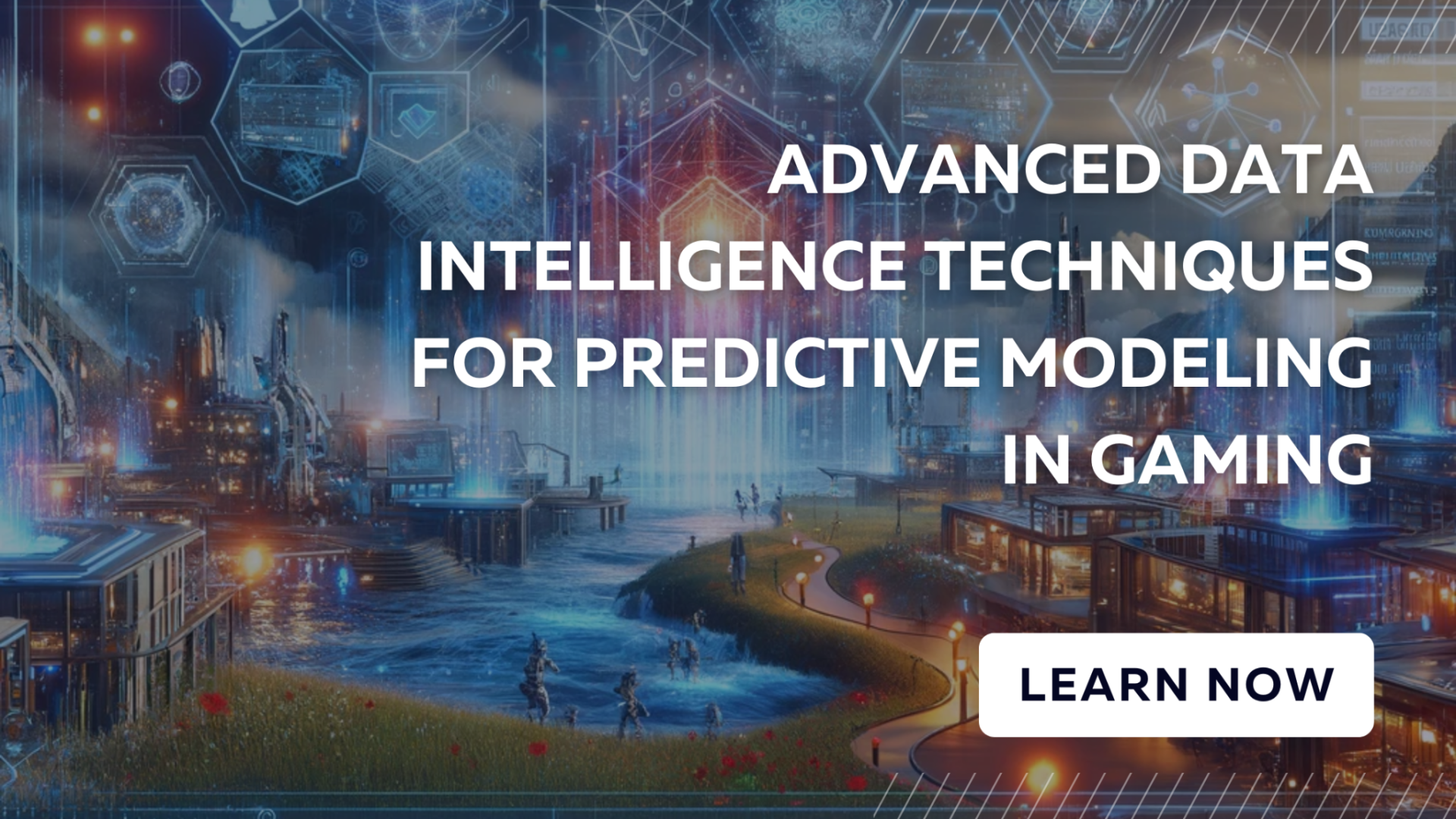Introduction
In the ever-evolving landscape of gaming, staying ahead requires more than innovation; it demands a strategic embrace of advanced data intelligence techniques. As the gaming industry burgeons, predictive modeling emerges as a linchpin, offering profound insights that go beyond conventional analytics. This blog delves into the transformative power of advanced data intelligence, unveiling its role in predictive modeling and its profound impact on shaping the future of gaming.
The Era of Predictive Modeling
As of 2022, the gaming industry boasts a staggering 2.7 billion gamers worldwide. Harnessing this colossal user base’s data is pivotal for predictive modeling, propelling game developers toward tailored experiences that resonate with individual players.
Numbers Speak: The Impact of Predictive Modeling:
- Games employing predictive modeling witness a 25% increase in player engagement.
- Personalized gaming experiences crafted through predictive modeling result in a 20% rise in player retention rates.
- Revenue spikes by 22% in games utilizing predictive modeling for targeted in-game purchases and promotions.
Advanced Data Intelligence Techniques:
- Machine Learning Algorithms:
- Implementing sophisticated machine learning algorithms deciphers player behavior patterns.
- Predictive analytics refine in-game challenges, adapting dynamically to player preferences.
- Real-time Data Processing:
- Advanced data intelligence enables real-time processing of vast datasets during gameplay.
- In-game adjustments and adaptive narratives respond instantaneously to player actions.
- Player Segmentation:
- Strategic segmentation of player demographics ensures targeted gaming experiences.
- Predictive modeling tailors content, rewards, and challenges to specific player groups.
Challenges and Solutions:
- Data Privacy: Robust data encryption and privacy protocols safeguard player information.
- Algorithmic Bias: Continuous refinement of algorithms mitigates biases, ensuring fair and inclusive gaming experiences.
The Future Landscape: AI-Driven Personalization:
- AI-driven predictive modeling will revolutionize gaming, offering hyper-personalized experiences.
- Machine learning models will anticipate player preferences, elevating user satisfaction and engagement.
FAQ:
Q1: How does predictive modeling impact player engagement?
A1: Predictive modeling leads to a 25% increase in player engagement by tailoring gaming experiences to individual preferences.
Q2: What role do machine learning algorithms play in predictive analytics?
A2: Machine learning algorithms decipher player behavior patterns, dynamically refining in-game challenges in real-time.
Q3: How does P99Soft address data privacy concerns in predictive modeling?
A3: P99Soft ensures data privacy through rigorous encryption and adherence to global privacy standards.
Q4: What is the significance of real-time data processing in gaming?
A4: Real-time data processing enables instant in-game adjustments and adaptive narratives, providing a seamless gaming experience.
Q5: How does predictive modeling contribute to revenue generation in gaming?
A5: Games utilizing predictive modeling for targeted in-game purchases and promotions experience a significant 22% boost in revenue.
Conclusion
In the dynamic realm of gaming, P99Soft stands as a beacon of innovation, leveraging advanced data intelligence services to redefine the gaming experience. As the industry hurtles towards a future driven by predictive modeling, P99Soft’s commitment to excellence ensures that each player’s journey is not just immersive but tailored to perfection. The fusion of cutting-edge technology and predictive analytics is not merely a strategy for success; it’s the key to mastering the game. P99Soft’s dedication to pushing the boundaries of what’s possible in gaming solidifies its position as a trailblazer, shaping the future of interactive entertainment. Embrace the power of advanced data intelligence, and let the games begin!



